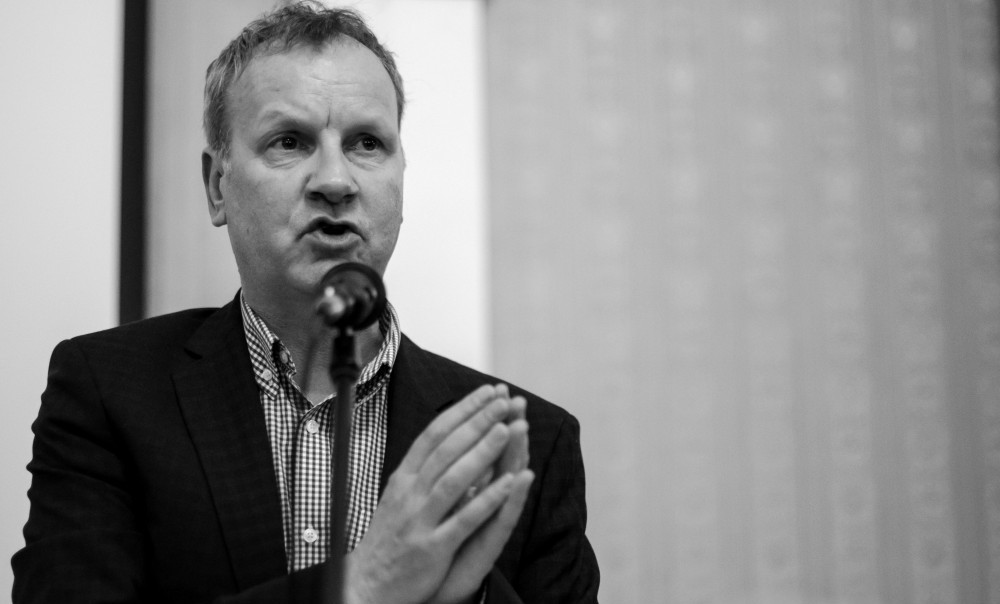 There’s a little church and it’s in one of Barcelona’s many pretty little squares. Like many historic building in central Barcelona the walls are pock-marked with the many bullets that were discharged during the Spanish Civil War. On inspection you can see the bomb damage inflicted by one of the first ever air raids carried out by the Italian Air Force in support of Franco’s Nationalist forces.
There’s a little church and it’s in one of Barcelona’s many pretty little squares. Like many historic building in central Barcelona the walls are pock-marked with the many bullets that were discharged during the Spanish Civil War. On inspection you can see the bomb damage inflicted by one of the first ever air raids carried out by the Italian Air Force in support of Franco’s Nationalist forces.
History is important and complex in Catalonia and it runs through every aspect of current political life. Nowhere is this more pronounced than in the debate about Catalan independence. The debate about independence can perhaps be best characterised as a commentary on the uneasy historic relationship between Catalonia and Spanish Castile. The many disputes and grievances between these two parts of the Iberian Peninsula are deeply felt and encompass culture, language, national identity and an almost unbelievable volley of national insults.
It is now reckoned that 1.6 million people took to the streets to demand independence, this from a nation that has just over seven million of a population. The preparation to celebrate the tri-centenary of the defeat in the Spanish Wars of Succession (when Catalan independence was effectively lost and which remains Catalonia’s national day) is likely to see millions link in a human chain the length of the Catalan coast. It is reckoned that this may be the biggest ever protest for national independence seen anywhere in the world in modern times.
Opinion polling on independence isn’t particularly scientific but what exists shows some 55% or so for independence with only just over 20% for remaining in the Spanish state. Buildings now proudly display the flag of an independent Catalonia and it is about the only source of conversation amongst the commentariat and civic society.
So what is fuelling Catalan independence and why is it demonstrating such passion, enthusiasm and commitment? Yes, grievance certainly, but it is also the view that as the economic engine of Spain, Catalonia contributes so much more to the Spanish economy than it secures in return. What has stoked it up to max, though, is Madrid’s refusal to even countenance the prospect of further significant constitutional change.
Catalonian independence remains a total no-go area for Madrid with their very real fear that independence could mean the end of what would be left of the Spanish state. Their refusal to even talk about constitutional change is pretty much about what they see as Spain’s very survival.
So what exists is an unbridgeable stand-off and the future remains almost dangerously uncertain. This uncertainty even seems to be infecting the curious state of the Catalan Parliament. In Barcelona we have the almost bizarre sight of the independence movement being split along ideological lines with competing left, right and centre independence parties. Politicians in Catalonia find it almost impossible to agree on a way forward. So step forward civic society and it is here that we find the leadership in the independence movement. One of the most unkind distinctions you hear about Scotland in Barcelona is that the Catalan independence movement is led from the bottom up whilst in Scotland it is from the top down.
What are the other comparisons and lessons for Scotland? Well, not many really. The two independence experiences are very different. When you ask the Catalans how they respond when unionists ask them, for example, what sort of defence forces an independent state will have they just look at you blankly and chastise you for asking such a stupid, irrelevant question. Indeed, the team preparing the equivalent of our white paper is only sixteen strong and is only getting ready to write the first paragraph. Where the Catalans feel oppressed by every utterance of the Spanish state, we can only feel oppressed by the very reasonableness of the UK Government and their co-operation over the Edinburgh Agreement.
It’s what happens next that is really interesting. It does look likely that there will be enough Catalan political unity to proceed with a consultative referendum next year. This is a referendum that is likely to be overwhelmingly won. What Madrid does following that will be the key event. Right now, though, there seems little scope for any discussions, far less agreement, between Barcelona and Madrid.
So where there may be two independence referenda in Europe next year, they really couldn’t be any more different, with entirely different contexts and backgrounds.

You must be logged in to post a comment.